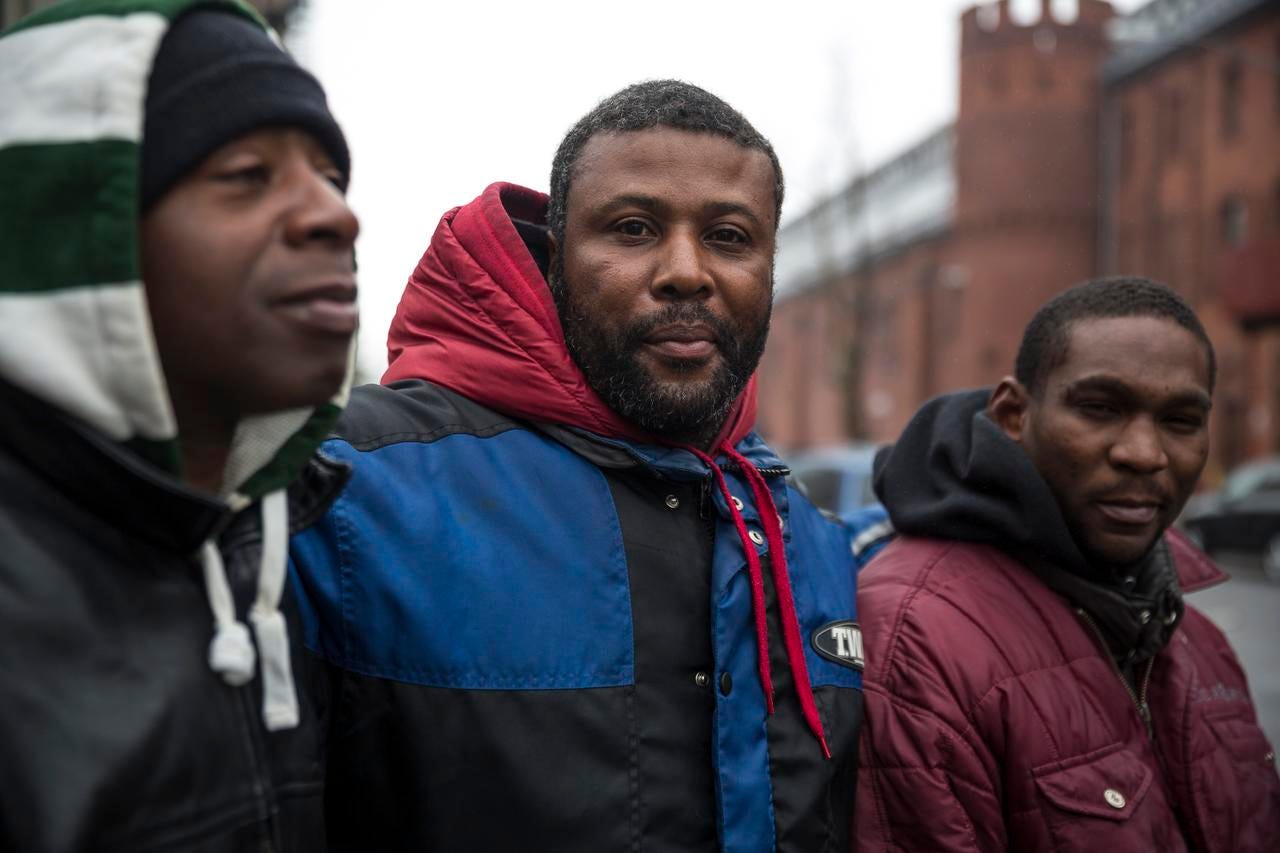Waiting for de Blasio
New York’s incoming mayor has vowed to tackle the city’s record-high homelessness. But outside a crowded Brooklyn shelter, the guys on the corner aren’t holding their breath.
It’s one of those crisp-but-bearable November afternoons in Crown Heights, Brooklyn, and lunchtime for the guys on the southwest corner of Bedford Avenue and Pacific Street. A small sedan pulls up and two men jump out. Trunk open, they begin to serve a hot meal, the first of the day for diners here: jerk chicken, potato salad and coleslaw, a favorite of the large Caribbean population in this slice of Brooklyn.
A maroon fortress towers above. This quasi-medieval citadel, partially outlined by scaffolding, was once home to Brooklyn’s National Guard, its crenellated overlook etched with slits for windows that seem fit for the Crusades. Now, the Bedford-Atlantic Armory, which spans nearly the entire length of Pacific Street, is one of the most spacious shelters in New York, housing about 300 single homeless men a night. But during the day, you can find its temporary tenants hanging out across the street.
Keep reading with a 7-day free trial
Subscribe to Narratively to keep reading this post and get 7 days of free access to the full post archives.




